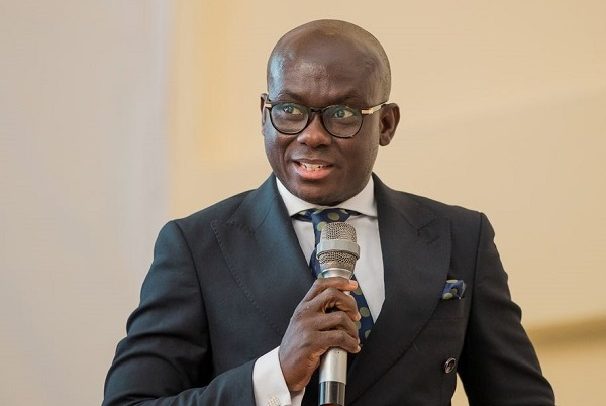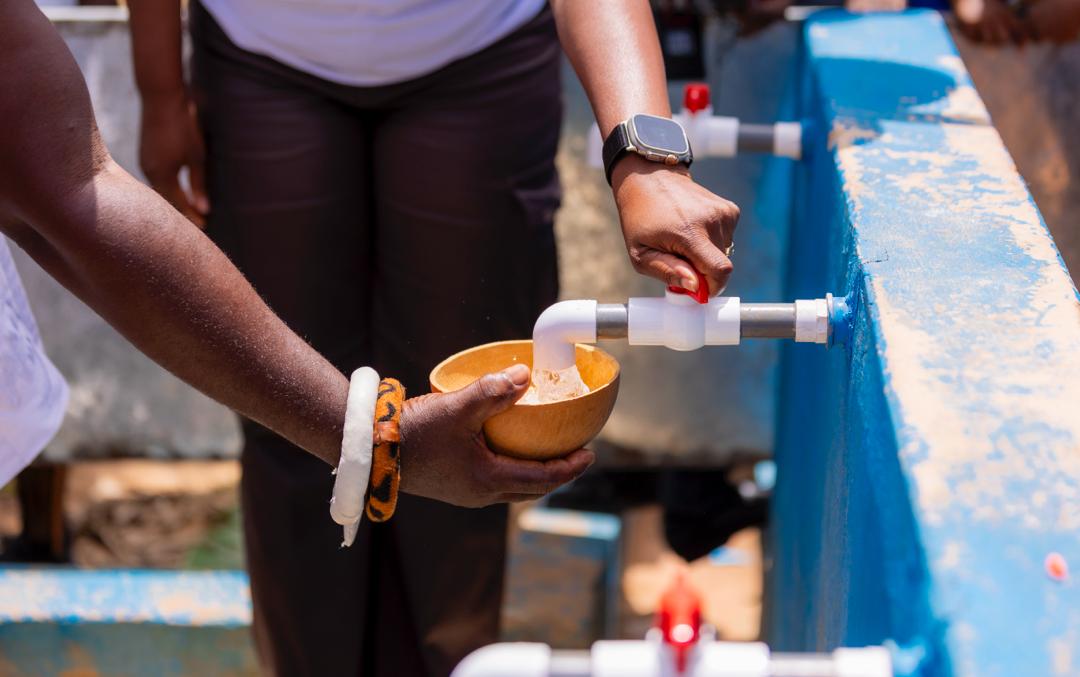
By Kafui Amanfu
As we celebrate the 7th anniversary of the Institute of ICT Professionals Ghana (IIPGH), and appreciating women in March, this article discusses and promotes female inclusivity and empowerment.
As the drive for social equality grows, female inclusion has become more important than ever, particularly in the technology space. Since establishing the Institute, IIPGH has been at the forefront of inclusivity, recognizing and celebrating the diversity of gender and expressions.
This can be seen in all its activities, hiring, and workforce, and has over the years demonstrated that inclusion is not just a buzzword but a focus, and a potential driver of innovation.
IIPGH puts a lot of priority on hiring females and most importantly considers a number of them on its board and management.
In a diverse and interconnected world, gender inclusion should drive the narrative, given its strong influence on individual lives, communities, and society.
Gender inclusivity in the digital space is crucial and demands attention. Despite the rise of Diversity, Equity, and Inclusion (DEI) initiatives across various sectors, there remains a significant gender disparity in tech organizations.
There is undoubtedly always room for improvement, but businesses are increasingly being compelled to realize the moral and commercial benefits of maintaining an inclusive work environment.
This involves having more different viewpoints and perspectives within the firm, as well as increasing the likelihood that consumers will feel represented and hence more willing to engage with products or services.
Creating an inclusive culture is essential to recruiting and retaining a diverse workforce. Many large tech companies have made public commitments to improving gender diversity, including increasing women in their technical and leadership ranks.
It is therefore believed that such technology firms, on average, will have more female representation in their workforces in the coming years, recognizing that diverse workforces are good for business.

The Institute of ICT Professionals Ghana, as a professional body, equally shares in the belief to promote gender inclusivity, to help close the gender digital divide, especially in Ghana.
Through its activities, the Institute gives much attention to female inclusion. The Institute organizes tailored women-led programs focusing on females on global event days such as the International Day of the Girl Child, International Women’s Day, and International Girls in ICT Day, amongst others.
These events target females from early ages through to adults. Every year, the Women in Tech wing of the Institute engages females to introduce and explore emerging technologies. These events and initiatives ignite curiosity and ambition in females, and their growth reaffirms the Institute’s commitment.

Partnerships and Initiatives
The Institute launched its Women-Led program in October 2018, marking a significant stride in narrowing the gender gap within the dynamic ICT sector.
Historically, women have faced underrepresentation in STEM (Science, Technology, Engineering, and Mathematics) fields, with the ICT space being no exception but this innovative program stands as an inspiration of change, with a dedicated mission to impart crucial IT skills to girls and young women.
For instance, as the world grapples with an ever-expanding digital landscape, the need to involve girls in the coding world has become increasingly imperative.

Recognizing the transformative power of coding in shaping the future, the Institute has seized the opportunity to impart invaluable knowledge and skills to young ladies in the tech space in collaboration with local and international organizations such as MTN Ghana, the then Vodafone Ghana (now Telecel), Achievers Ghana Foundation, the Ghana Chamber of Telecommunications, and Code it!, TinkerToys, Code For Afrika from Germany.
For example, the Institute with Vodafone Ghana has trained 1000 (One Thousand) girls from 7 to 18 years old, in coding and other digital skills. Similarly, from 2021, the Institute and the Ghana Chamber of Telecommunications, also train about 400 or more girls yearly in different selected marginalized locations of the country, through its Coding Caravan initiative. Again, with the Chamber, the Institute supports the Seat for Ladies in STEM (S4LIS) program, launched in 2022.

In doing so, IIPGH not only contributes to bridging the gender gap in the tech industry but also empowers females to become active contributors and leaders in the fast-evolving world of technology.
Our focus remains to empower women with essential tech skills through robust capacity-building programs, fostering collaboration, innovation, and knowledge-sharing to create a supportive environment for females in ICT.
IIPGH aspires to expand its reach and impact, advocating for more females in tech and fostering inclusivity, diversity, excellence, and creating a legacy of positive change for women in technology.
Governance
As part of the organization’s governance, the Institute’s board is represented currently by four (4) females namely, Nana Adwoa Adobea Asante, Secretary to the NCA (National Communications Authority); Grace Anim-Yeboah, Director, Business Banking, ABSA Bank; Ama Benneh Amponsah, Head of People, Africa, Newmont; and Muniratu Musah, Core Network Planning Engineer, MTN Ghana. Its management team is also represented by several females.
Highlighting a few of their strengths, Nana Adwoa Adobea Asante, for instance, with expertise in the MSME sector for oil and gas, mining, fintech, ICT, commerce, agribusiness, and education subsectors adds value to the professional body in these diverse fields.
She has strong communication and negotiation skills combined with a distinctive ability to build robust relationships with key industry players. A fellow of the International Women’s Federation of South Africa (IWFSA), Nana Adwoa is a passionate and dedicated female leader with a heart for women and youth.
Grace Elizabeth Anim-Yeboah, Director of Business Banking at ABSA Bank brings to the board her extensive experience directing various aspects of global retail, corporate, and business management.
She is a growth-focused tech-savvy executive, decisive in building strong collaborative professional services, leading, and coaching high-performing teams, streamlining business activities, and delivering mission-critical solutions to improve small and medium-scale enterprises’ business and financial performance in competitive markets, and more.
Declaration
In Ghana’s promising tech landscape, gender diversity and inclusion cannot be overstated. As we embark on this bracing digital transformation journey, it is crucial to address the underrepresentation of women in the tech space. This challenge is not unique to Ghana, however, our progress as a professional body and as a nation hinges on our ability to harness the full potential of every citizen, as diversity fosters innovation. When individuals from different experiences come together, they bring exclusive viewpoints that generate creativity and solutions.
The Women’s wing of IIPGH stands as a powerful catalyst for change, breaking down barriers and fostering inclusivity. From initiatives such as “Girls in ICT Day” to transformative training workshops and programs like “CodeLikeAGirl”, “Digital Girls”, “S4LIS”, etc., IIPGH in collaboration with its partners, has consistently championed the cause for female inclusivity, and is positively looking forward to more strategic collaborations to promote inclusivity and diversity.
Author: Kafui Amanfu, Director of Operations, IIPGH
For comments contact 233244357006 or [email protected]
The post IIPGH as a catalyst for change – Inspiring inclusion appeared first on The Business & Financial Times.
Read Full Story



























Facebook
Twitter
Pinterest
Instagram
Google+
YouTube
LinkedIn
RSS